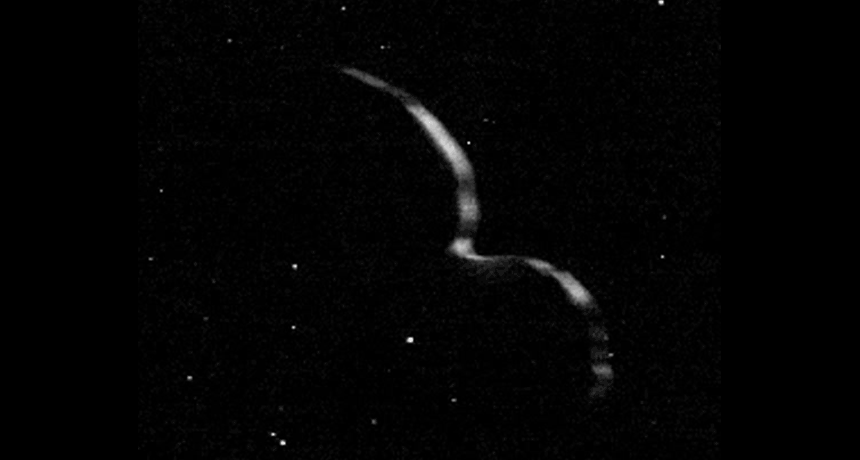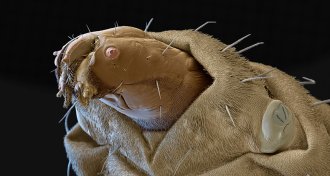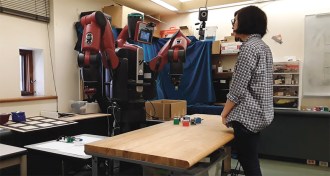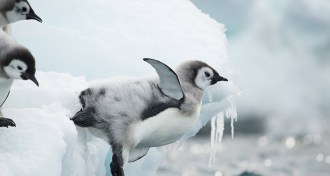News in Brief
-
 Earth
EarthGreenland may have another massive crater hiding under its ice
There may be yet another large crater buried beneath Greenland’s ice sheet. But it’s probably not related to the first one found last year.
-
 Astronomy
AstronomyUltima Thule is shaped like two lumpy pancakes
Scientists are rethinking the shape of the space rock, once thought to be a snowman.
-
 Health & Medicine
Health & MedicineIn some cases, getting dengue may protect against Zika
A Zika outbreak in a Brazilian slum suggests that the timing of dengue infections may matter for protection against Zika.
-
 Health & Medicine
Health & MedicinePills equipped with tiny needles can inject a body from the inside
High-tech pills equipped with medicinal needles could administer painless shots inside the body.
-
 Animals
AnimalsHow black soldier fly larvae can demolish a pizza so fast
When gorging together, fly larvae create a living fountain that whooshes slowpokes up and away.
By Susan Milius -
 Planetary Science
Planetary ScienceA basketball-sized rock hit the moon during the last lunar eclipse
Professional and amateur astronomers joined forces to analyze the impact.
-
 Physics
PhysicsLaser light can contain intricate, beautiful fractals
Fractals show up in cauliflower, seashells and now — lasers.
-
 Science & Society
Science & SocietyNSF science research funds are flowing again after the shutdown
Assessing the scope of the shutdown’s impact on NSF-funded science will be a long process.
-
 Artificial Intelligence
Artificial IntelligenceA new AI training program helps robots own their ignorance
AI systems struggle to know what they don’t know. Now scientists have created a way to help autonomous machines recognize their blind spots.
-
 Artificial Intelligence
Artificial IntelligenceThis robot learned not to mess with other people’s stuff
Ownership-respecting robots could soon understand the difference between chucking a Styrofoam cup and someone’s favorite mug.
-
 Animals
AnimalsYoung emperor penguins brave icy, winter waters in their first year
Young emperor penguins learn survival skills on their own, including how to navigate Antarctica’s icy winter ocean.
By Jeremy Rehm -
 Materials Science
Materials ScienceBeing messy on the inside keeps metamaterials from folding under stress
Inspiration from disordered arrangements of atoms in crystalline metals may lead to longer-lasting, next-gen materials.